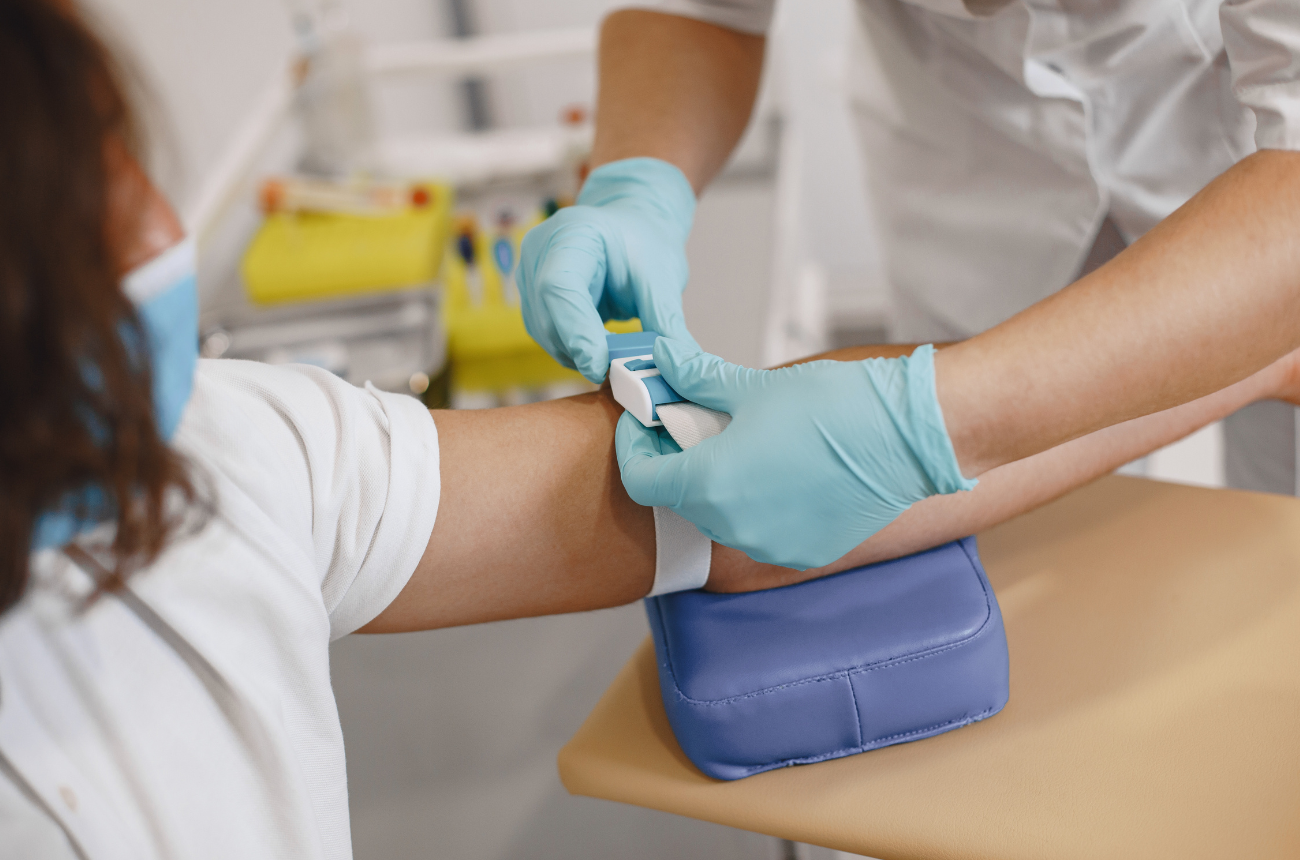Before beginning hormone replacement therapy (HRT), lab testing is essential, not only for safety, but for developing a precise, personalized treatment plan. Whether you’re treating low testosterone, estrogen imbalance, or perimenopausal symptoms, ordering the right labs at the right time ensures optimal outcomes and compliance with medical standards.
In this guide, we’ll walk through the core labs to order for male and female patients before starting HRT, when to re-test, how to track lab trends over time, and how to streamline this workflow using EMR lab panel templates and built-in protocols.
Why Lab Testing Matters Before Starting Hormone Therapy
Hormones interact with nearly every system in the body, from mood and metabolism to cardiovascular and sexual health. Jumping into HRT without a baseline picture is not only clinically irresponsible, it could also lead to poor outcomes, missed diagnoses, or medical board scrutiny.
Proper lab testing helps:
- Confirm a clinical diagnosis of hormone deficiency or imbalance
- Rule out contraindications or underlying conditions
- Establish a safe and effective baseline
- Guide personalized dosing
- Provide documentation for medical necessity and liability protection
Best Practice: Always document labs, review results with the patient, and obtain informed consent before initiating HRT.
Core Labs to Order Before HRT
The right lab panel depends on sex, age, symptoms, and treatment goals. Here are the standard labs to include for both men and women prior to initiating therapy:
Male HRT Lab Panel To Consider (Pre-Testosterone Therapy)
- Total Testosterone
- Free Testosterone
- DHEA-S
- Estradiol (E2, sensitive assay)
- Sex Hormone Binding Globulin (SHBG)
- Luteinizing Hormone (LH)
- Follicle-Stimulating Hormone (FSH)
- Prolactin
- PSA (Prostate-Specific Antigen, if over 40)
- CBC (Complete Blood Count)
- CMP (Comprehensive Metabolic Panel)
- Lipid Panel
- Thyroid Panel (TSH, Free T3, Free T4)
- Hemoglobin A1c or fasting glucose
Female HRT Lab Panel To Consider (Pre-Estrogen/Progesterone Therapy)
- Estradiol (E2)
- Progesterone
- Testosterone (Total and Free)
- DHEA-S
- FSH & LH (especially in perimenopausal women)
- Sex Hormone Binding Globulin (SHBG)
- TSH, Free T3, Free T4
- CBC
- CMP
- Lipid Panel
- Vitamin D (25-OH)
- Hemoglobin A1c
Timing matters: For menstruating women, labs are ideally drawn on Day 19–21 of the cycle (luteal phase) for progesterone and estradiol accuracy.
When to Re-Test Hormone Labs After Starting HRT
Monitoring isn’t optional, it’s part of delivering safe and effective care. Once HRT begins, labs should be re-checked at specific intervals to evaluate therapeutic response, adjust dosage, and catch adverse effects early.
Common Lab Monitoring Timelines:
- 6–8 weeks after starting or adjusting HRT:
- Check hormone levels, CBC, and relevant safety markers
- Every 3–6 months during dose titration:
- Evaluate symptom relief, hormone balance, and metabolic markers
- Annually (once stable):
- Reassess hormone levels, PSA (in men), liver function, and cardiovascular risk factors
For Pellet Therapy:
- Re-test 4–6 weeks post-insertion to assess peak levels
- Monitor every 3–4 months for repeat insertion or dose adjustment
How to Use EMR Lab Panel Templates to Streamline HRT Testing
Manually ordering individual labs for each patient can waste time and increase the chance of omissions. The solution? Pre-built lab panel templates in your EMR or EHR system.
Benefits of Lab Panel Templates:
- Quickly order complete hormone panels with a single click
- Customize male vs. female panels based on provider preferences
- Ensure consistency across your clinical team
- Reduce administrative errors or missed tests
- Easily track results across time using built-in lab graphs or reports
Why OptiMantra Helps:
OptiMantra allows you to create and save custom HRT lab panels (e.g., “Male TRT Baseline” or “Female Pellet Follow-Up”) and integrate electronically with national lab vendors like Labcorp, Access, Quest, as well as hundreds of other specialty lab companies. Lab results auto-populate into the patient’s chart, with tracking tools to monitor trends and guide clinical decisions.
How to Track and Act on Lab Results Over Time
Tracking labs isn’t just about watching numbers, it’s about correlating them with clinical outcomes. Here’s how to approach it:
Consider Tracking These Over Time:
- Total + Free Testosterone
- Estradiol + Progesterone balance (esp. in women)
- Hematocrit (risk of polycythemia in men)
- PSA (prostate safety in men)
- Lipids, liver function, and glucose control
- SHBG trends, especially when symptoms don’t match serum levels
Use EMR Tracking and Charting Features:
- Graph results over time to visualize trends
- Document clinical notes alongside lab values
- Set reminders for follow-up testing intervals
Final Thoughts: Test, Don’t Guess
Lab testing is the foundation of responsible, personalized HRT care. From identifying the right starting dose to minimizing long-term risks, your lab protocol determines the quality, and legality, of your hormone therapy program.
Key Takeaways:
- Order baseline labs before prescribing HRT, tailored to male or female physiology
- Time labs correctly, especially in menstruating patients
- Re-test at 6–8 weeks, then every 3–6 months, and annually once stable
- Use EMR lab panel templates to streamline and standardize testing
- Track trends over time and always correlate labs with symptoms
Want to Simplify HRT Lab Workflows for Your Clinic?
OptiMantra helps integrative and functional medicine practices streamline lab ordering, track hormone tracking, and personalize care with EMR tools designed specifically for HRT providers.
Try for free here to see how OptiMantra supports your lab testing workflow from baseline to long-term monitoring.
Disclaimer: This article is for educational purposes only and is not a substitute for professional medical advice. Always consult a licensed provider and follow professional guidelines before implementing or changing any treatment plans.





